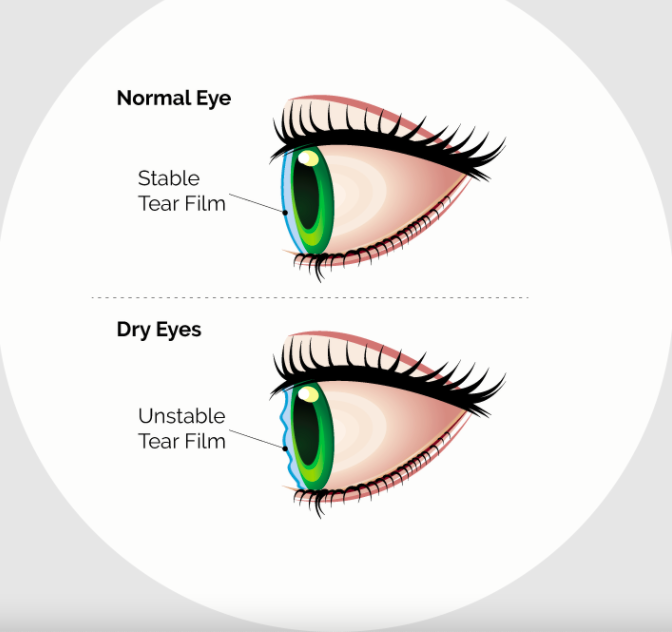All Categories
Featured

While the majority of people understand the significance of shielding their skin from the sunlight, the unsafe results of ultraviolet (UV) rays on eye health and wellness usually go neglected. Nevertheless, extreme direct exposure to UV radiation can result in a variety of eye troubles, a few of which can result in irreversible damage. Whether you're saturating up the sun on a summertime day or strolling outdoors on a gloomy afternoon, protecting your eyes from UV rays is important. Right here's what you need to understand about the impacts of UV radiation on your eyes and exactly how to protect them.
What Are UV Rays? UV rays are a kind of electromagnetic radiation discharged by the sun. They are categorized right into three types:
UVA Rays: These penetrate deep into the skin and eyes and can contribute to long-lasting damages. UVB Rays: These rays are much more extreme than UVA and are largely in charge of surface-level damage to the eyes and skin. UVC Rays: These are the most harmful but are mainly absorbed by the Earth's ozone layer and do not typically reach us. UVA and UVB rays are the main perpetrators behind eye-related damage.
Short-Term Impacts of UV Exposure on the Eyes. Even short-term exposure to intense UV rays can damage your eyes. One common condition triggered by this is photokeratitis, or "sunburn of the eye." Signs of photokeratitis consist of:
Unpleasant, red eyes. Level of sensitivity to light. Tearing or excessive watering. Short-lived vision loss or fuzzy vision. Photokeratitis is typically temporary, however it serves as a caution of just how damaging UV exposure can be, also in little doses.
Long-Term Effects of UV Exposure. Long term direct exposure to UV radiation can bring about much more major and irreversible eye conditions, such as:
Cataracts: UV rays can accelerate the formation of cataracts, a problem that causes clouding of the eye's natural lens, causing fuzzy vision and, if without treatment, blindness.

Macular Deterioration: UV direct exposure can damage the retina, especially the macula, enhancing the risk of age-related macular degeneration (AMD), which impacts main vision.
Pterygium: A growth of tissue on the white part of the eye that can cross the cornea, creating pain, redness, and vision issues.
Pinguecula: UV direct exposure can cause yellow-colored deposits to base on the conjunctiva, bring about irritability and dryness.
Skin Cancer Cells Around the Eyes: The delicate skin bordering your eyes is extremely vulnerable to UV radiation, increasing the danger of skin cancers cells like basal cell carcinoma and squamous cell carcinoma.
Just How to Safeguard Your Eyes from UV Rays. Protecting your eyes from UV rays is straightforward and calls for a few mindful behaviors:
Invest in Top Quality Shades: Select sunglasses that obstruct 100% of UVA and UVB rays. Search for tags that define "UV 400" security. Wrap-around designs are ideal as they obstruct UV rays from the sides also.
Put On a Wide-Brimmed Hat: A hat with a brim at least three inches vast can considerably decrease UV exposure to your eyes and face.
Limitation Exposure During Top Hours: UV rays are toughest in between 10 a.m. and 4 p.m. If you have to be outdoors throughout these hours, make sure you're adequately shielded.
Don't Be Deceived by Clouds: UV rays can permeate through clouds, so it is very important to use sunglasses even on overcast days.
Safeguard Your Eyes Year-Round: Snow, sand, and water can mirror UV rays, increasing their impacts. Eye security isn't just for bright summer days-- ensure you're covered in all periods.
Usage UV-Blocking Get In Touch With Lenses: Numerous call lenses now feature UV security. If you put on get in touches with, ask your ophthalmologist about lenses with built-in UV filters for added security.
Urge Eye Defense for Kid: Kid's eyes are a lot more conscious UV rays due to the fact that their lenses are clearer, enabling even more radiation to reach the retina. Ensure they wear sunglasses and hats throughout outside tasks.
Regular Eye Exams. Normal check-ups with an eye care professional are crucial for early discovery of any type of UV-related damages. An eye doctor or eye doctor can review your eyes, advise safety steps, and identify problems like cataracts or macular deterioration early.
Verdict. UV rays pose a considerable hazard to eye health and wellness, and their effects can build up gradually. With the best safety measures, you can lessen these threats and secure your vision. By wearing UV-blocking sunglasses, restricting sun direct exposure during peak hours, and remaining consistent with eye exams, you can ensure your eyes remain healthy and balanced and your vision continues to be clear for many years to find. Safeguarding your eyes from UV radiation isn't nearly convenience-- it's a necessary action in protecting your long-term eye health and wellness.
Latest Posts
Why Regular Vehicle Maintenance at Montclare Auto Repair Keeps Your Wallet Happy
Discover the Greatest Auto Repair Deals in Montclare, Chicago
Experience Yesterday's Pub: Where Taste Fulfills Custom